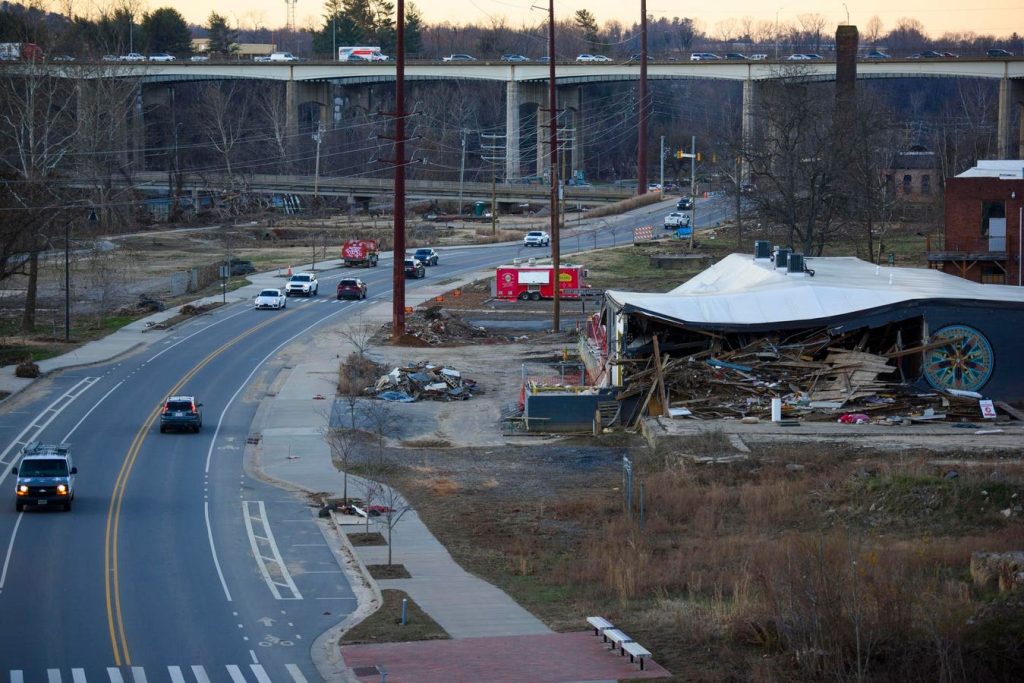Congress Approves Disaster Relief Funding After SBA Loan Program Depletion Cripples Small Businesses
Washington, D.C. – After intense negotiations, Congress has passed a continuing resolution (CR) to fund the government through March 14, 2025. A significant component of this resolution is the allocation of approximately $100 billion for disaster relief, aimed at assisting Americans grappling with the aftermath of a series of devastating natural disasters in 2023 and 2024. Notably, the CR includes $2.2 billion to replenish the depleted U.S. Small Business Administration (SBA) disaster loan fund, a lifeline for businesses struggling to recover. The exhaustion of these funds had left countless small businesses across multiple states without crucial financial support in the wake of Hurricanes Helene and Milton.
The SBA’s disaster loan program, which offers low-interest, long-term loans to disaster-stricken businesses, was overwhelmed by the sheer volume of applications following the back-to-back hurricanes. By October, the agency announced the depletion of its disaster loan funds, effectively halting its ability to provide assistance. The impact was immediate and widespread, leaving businesses from Virginia to Florida in dire straits. The SBA reported receiving approximately 37,000 applications related to Hurricane Helene, resulting in over 700 loan offers totaling $48 million before funds ran dry. An additional 12,000 applications flooded in following Hurricane Milton, further highlighting the immense need for financial aid.
The funding shortfall had a crippling effect on local economies reliant on tourism and small businesses. In southwest Virginia, the renowned 34-mile Virginia Creeper Trail suffered extensive damage, with 18 miles rendered unusable. The closure of this popular tourist attraction has had a ripple effect on the region’s economy, threatening the livelihoods of businesses dependent on trail-related tourism. Governor Glenn Youngkin’s urgent request for funding underscored the severity of the situation, highlighting the trail’s significance as an economic driver for southwest Virginia.
The stories of business owners like Michael Wright and Ralph Wilson in Damascus, Virginia, paint a stark picture of the struggle faced by small businesses in the absence of SBA disaster loans. Wright, who operates four businesses in the area, was forced to shoulder the burden of cleanup and recovery efforts alone after discovering the unavailability of SBA loans. Wilson, facing even more dire circumstances, had to close two of his four businesses due to flooding from Hurricane Helene. Without access to SBA assistance, he resorted to paying his employees out of pocket while desperately seeking alternative sources of aid. The combined impact on these two entrepreneurs resulted in the layoff of 67 employees, demonstrating the devastating reach of the funding shortage.
The dire situation facing communities impacted by the hurricanes spurred bipartisan action from lawmakers representing the affected states. Senator Thom Tillis (R-NC) emphasized the urgency of the situation, citing the prolonged water crisis in Asheville, North Carolina, as a prime example of the widespread devastation. He stressed the need to prioritize disaster relief and put aside political differences to provide timely assistance to those struggling to rebuild their lives and businesses. The bipartisan support for restoring SBA disaster loan funding within the CR reflects the widespread recognition of the program’s vital role in disaster recovery.
The inclusion of $2.2 billion for the SBA disaster loan program in the continuing resolution is a significant victory for small businesses and communities impacted by natural disasters. It provides a crucial lifeline for recovery and rebuilding efforts. However, the temporary nature of this funding highlights the need for a more robust and sustainable solution. With the ever-present threat of future natural disasters, Congress must prioritize long-term measures to ensure that the SBA has adequate resources to support Main Street businesses in times of crisis. Proactive measures, including pre-disaster funding mechanisms, are essential to prevent future gaps in assistance and ensure that small businesses have access to the vital resources they need to weather future storms.















